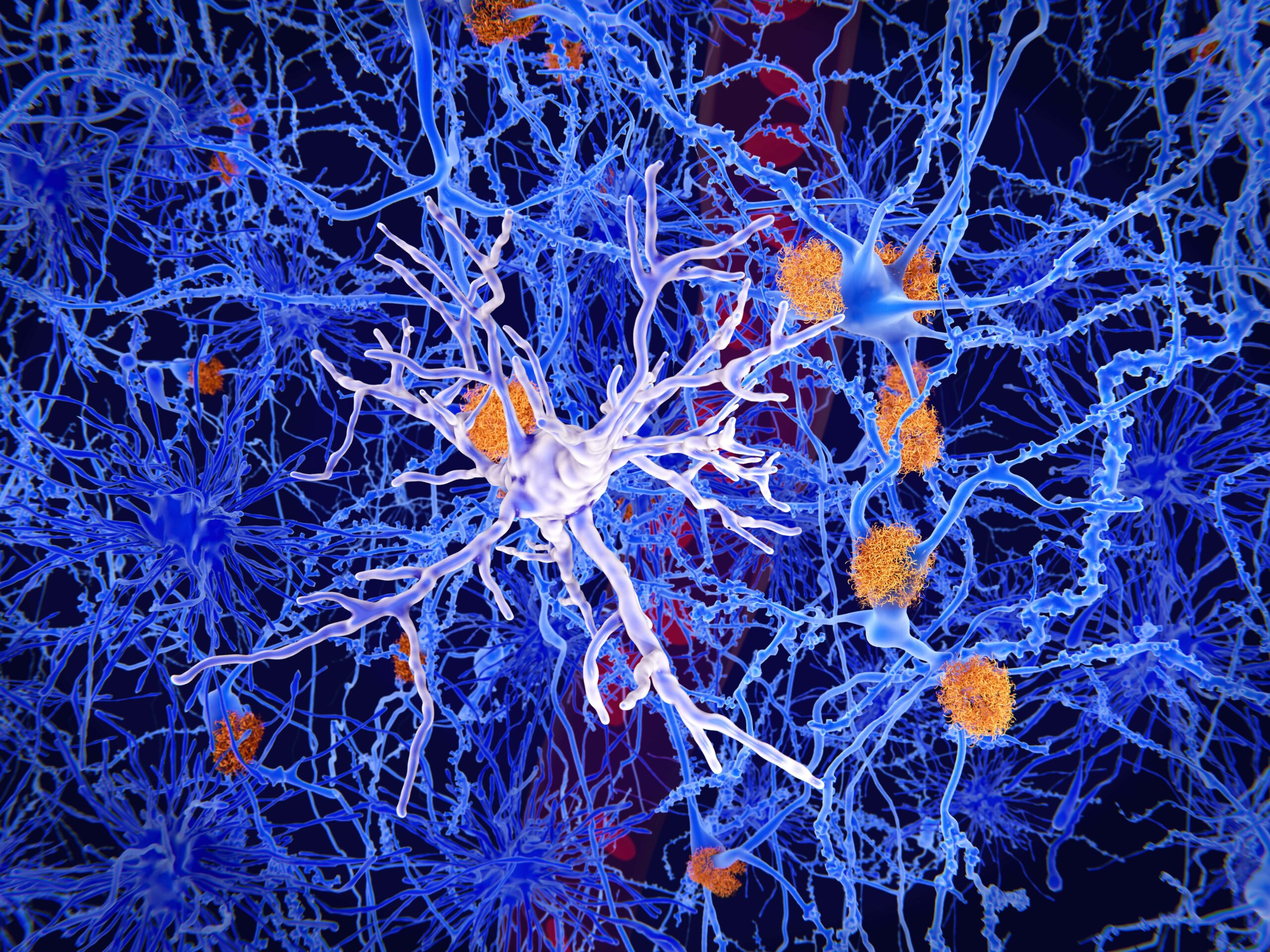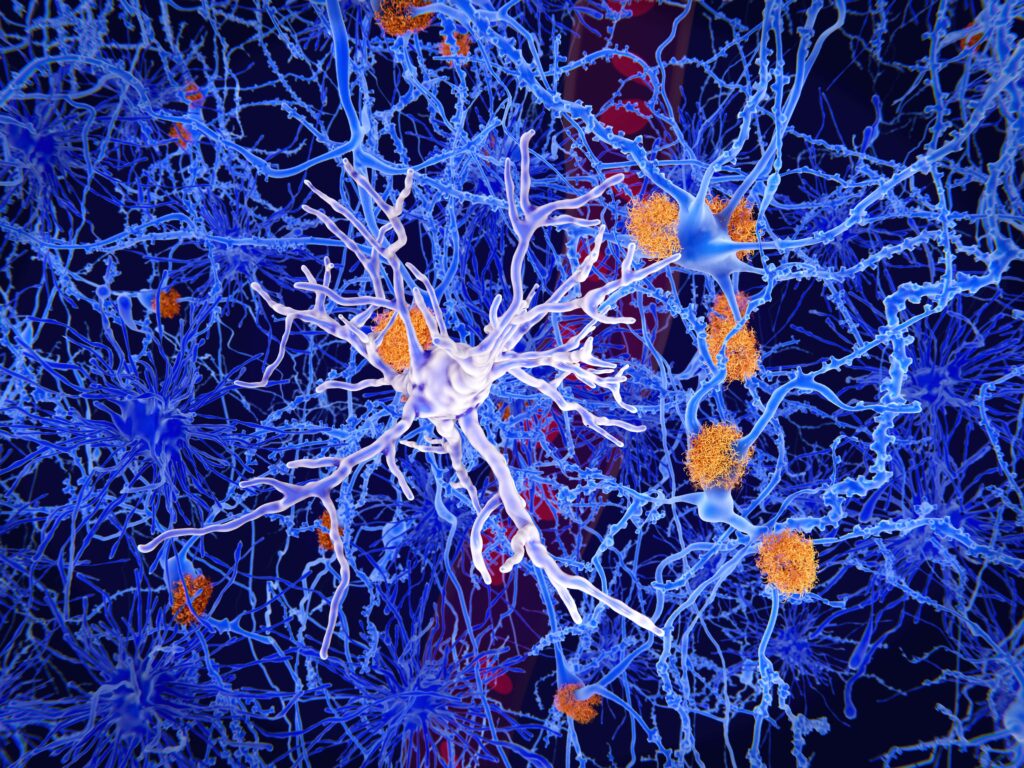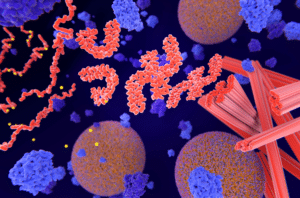Amyotrophic lateral sclerosis (ALS), also known as Lou Gehrig’s disease, is a progressive, devastating neurodegenerative disease with no known cure. While the cause of ALS is unknown, ALS is known to be characterized by progressive degeneration of upper and lower motor neurons in the spinal cord. ALS symptoms usually first present as weakness or loss of coordination in the hands, feet, arms, or legs. Then, as the disease worsens, most patients will eventually lose the ability to walk, speak, swallow, and breathe. The main goal of ALS research today is to find treatment options that can effectively slow the progression of the disease and its symptoms. By pinpointing a protein implicated in ALS, a new study has uncovered a promising new pathway toward treatment.
ALS and the Role of Immune Cells
The spread of ALS is characterized by the gradual deterioration of motor neurons, the nerve cells that control voluntary movement. The degeneration of the motor neurons is what leads to the subsequent widespread and progressive muscle degeneration that occurs in the disease, which becomes more severe and debilitating over time, eventually leading to fatal paralysis.
While motor neuron degeneration is the hallmark of ALS, the cause of the disease is currently unknown. About 10 percent of ALS diagnoses can be traced to a genetic component, but the remaining 90 percent cannot. And previous research has found that the neurodegeneration which occurs in both the inherited and the sporadic forms of the disease is influenced by other cells, including immune cells — in particular, microglia and peripheral macrophages. In a healthy person, both microglia and macrophages serve an important function, working together to maintain brain and spinal cord health by destroying dead cells and fighting off invaders. But with ALS, these cells become hyperactive. Along with hyperactivity of these immune cells, researchers have also observed that motor neuron degeneration is accompanied by inflammation.
However, there has been a long-standing debate over the question of whether this inflammation is simply correlated with motor neuron death or if it is causative. A new study published in the Proceedings of the National Academy of Sciences is finally providing more clarity.
Alpha-5 Integrin: A New Target for Treatment
The researchers first utilized SOD1 mice, a mouse model of ALS, and then further confirmed their testing by using human brain tissue donated postmortem. They unveiled two groundbreaking discoveries. First, they identified and implicated alpha-5 integrin (a5 integrin) as the specific protein being highly expressed by immune cells in the motor cortex, spinal cord, and peripheral nerves in ALS. Second, their testing revealed that blocking the expression of a5 integrin with a monoclonal antibody could effectively slow the spread of the disease.
“At this point, we cannot say it’s a cure but it’s a very interesting start,” said Bahareh Ajami, Ph.D., assistant professor of molecular microbiology and immunology and behavioral neuroscience in the Oregon Health and Science University’s School of Medicine and the study’s senior author. “It may be similar to what immunotherapy did for cancer or will do for Alzheimer’s by targeting immune cells.”
Once Ajami and her team identified a5 integrin as the specific protein being highly expressed by immune cells, they next treated the SOD1 mouse model using a monoclonal antibody that blocks a5 integrin expression. When they did, they learned that blocking that protein’s expression “protected motor function, delayed disease progression, and increased mouse survival.”
Critically, the monoclonal antibody used to treat the SOD1 mouse is already approved and in use to treat certain types of cancer. Because of this, while more research and testing are needed, Ajami and her team are hopeful that having already gone through the safety testing and approval process with the Food and Drug Administration (FDA), the process of approving this immunotherapy as a treatment for ALS might be expedited.
Scantox is a part of Scantox, a GLP/GCP-compliant contract research organization (CRO) delivering the highest grade of Discovery, Regulatory Toxicology and CMC/Analytical services since 1977. Scantox focuses on preclinical studies related to central nervous system (CNS) diseases, rare diseases, and mental disorders. With highly predictive disease models available on site and unparalleled preclinical experience, Scantox can handle most CNS drug development needs for biopharmaceutical companies of all sizes. For more information about Scantox, visit www.scantox.com.










